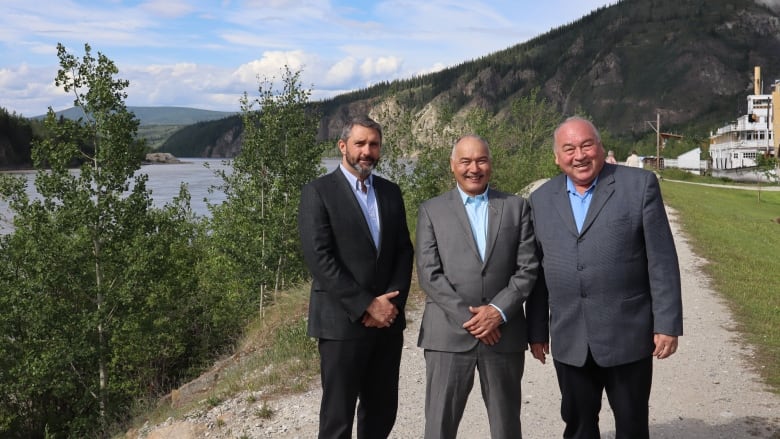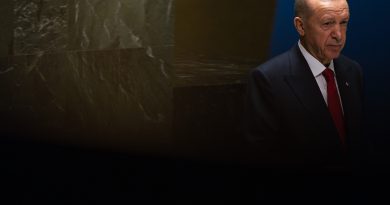Canada’s territorial premiers discuss priorities for a ‘united North’

The three territorial premiers focused on uniting the North at the Northern Premiers Forum in Dawson City, Yukon (northwestern Canada), Friday.
“We think that there’s a strength in numbers for [a] united North,” Yukon Premier Sandy Silver told reporters in a teleconference following the forum.
He noted it’s especially important for the North to “stick together to an agenda” with the Western Premiers’ Conference, Council of the Federation and a federal election looming.
Topics of discussion at the forum included climate change, community-based infrastructure, disaster mitigation, energy, transportation, Missing and Murdered Indigenous Women and Girls (MMIWG), RCMP (federal police) funding, and mental health and addictions.
All three premiers stressed the need for flexibility and unique considerations for the North when it comes to federal funding.
“The federal government should talk to us before they make any decisions in the Arctic or in the North because we’re the ones that are here. We’re the ones that know what the problems are. We’re the ones that would be best suited to come up with solutions,” said Joe Savikataaq, who is celebrating his first year as the premier of Nunavut.
He said the North wants to “get to where the rest of Canada is” and develop “what southern Canadians take for granted,” like improving infrastructure.
“We keep on having to describe the unique circumstances of the North,” added Silver.
A changing Arctic
N.W.T. Premier Bob McLeod, who among the current sitting premiers in Canada has served the longest, also spoke about how climate change is affecting the Arctic, including wildfires and permafrost thaw.
“The fact of the matter is a large part of the climate change issue is because of southern actions,” he said, noting the North has a small population.
“We feel that the rest of southern Canada has to have a better understanding of the Arctic, they have to recognize that people live up here, that their actions is having an effect on us,” he said.
“As the Arctic changes we need to take advantage of… the fact that the geopolitics of the Arctic is changing as well.”
Ending violence against Indigenous women
The premiers also said the territories are currently reviewing the final report from the National Inquiry into Missing and Murdered Indigenous Women and Girls. Each intends to release an action plan to address the report’s recommendations or “calls for justice.”
“We’re looking forward to addressing actions at the root causes of this crisis,” said Silver.
“I think we as Canadians, we’re all affected by these tragic events that have been documented through this inquiry,” he said. “We have a stake in ending violence against not only Indigenous women and girls but also LGBTQ2S+ individuals and that’s the good work that we’re going to endeavour moving forward.”
Silver noted that the report has recommendations targeted at different levels of government and Savikataaq added 42 of the final report’s 231 recommendations are Inuit-specific.
One item that wasn’t on the agenda of the premiers’ forum was the territories’ approaches to the federal carbon tax.
“We’ve had this conversation for years now. It’s being implemented and we’re moving on,” said Silver.
Written by Emily Blake based on reporting by Dave Croft
Related stories from around the North:
Canada: Canada’s long-term neglect of Arctic must stop says Senate report, Eye on the Arctic
Finland: Antti Rinne sworn in as Finland’s PM, Yle News
Norway: “The ‘Smart Arctic’ is Indigenous,” Saami leader tells Arctic Frontiers, The Independent Barents Observer
Russia: Russia is building a new Arctic with private investments, The Independent Barents Observer
Sweden: Why some northerners will welcome Sweden’s relaxed shoreline protection rules, Radio Sweden
United States: U.S. Attorney General hears from Indigenous leaders about justice problems in rural Alaska, Alaska Public Media



